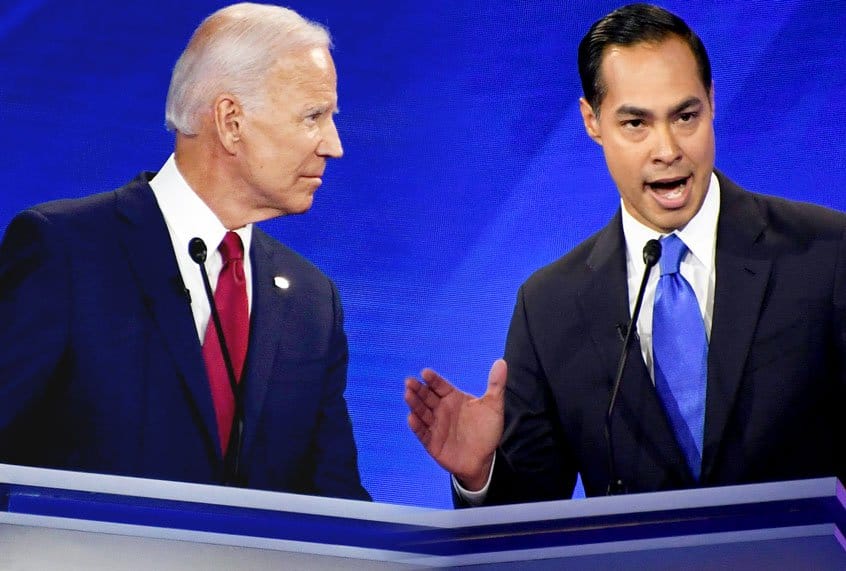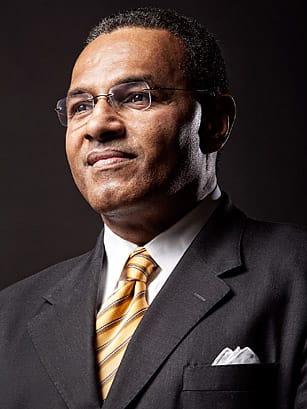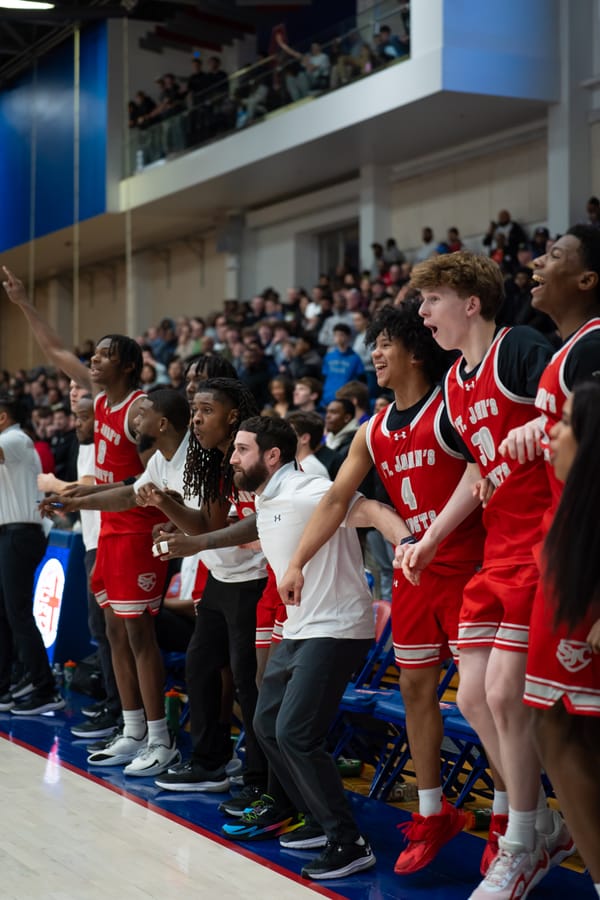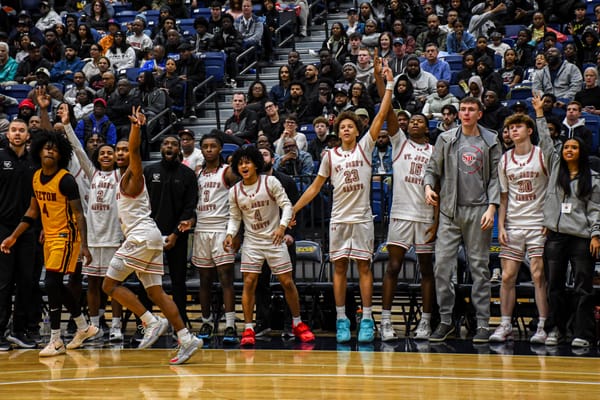Castro Makes Impact As Dems Hold Third Debate

 Democratic presidential candidates once again took the stage last Thursday, Sept. 12, to make their case to voters, and as the debate field was trimmed from 20 candidates to 10, those left took the opportunity to establish themselves both with their own rhetoric and by drawing contrast to the policies of those across from them.
Democratic presidential candidates once again took the stage last Thursday, Sept. 12, to make their case to voters, and as the debate field was trimmed from 20 candidates to 10, those left took the opportunity to establish themselves both with their own rhetoric and by drawing contrast to the policies of those across from them.
This debate, the third for the Democratic Party primary election in 2020, was held at Texas Southern University, a HBCU in Houston, and there was a clear appeal being made to Latinx questions, most notably by moderator and Univision host Jorge Ramos’ hardline tone in asking candidates about immigration and issues in Latin and South America.
The night began with Ramos expressing support to the Latinx community during a time of fear in Spanish, and later Indiana Mayor Pete Buttigieg and former Texas Congressman Beto O’Rourke would both include a sentence in Spanish to their answers on immigration policy. Eventually, New Jersey Senator Cory Booker would make light of the continued use of Spanish by non-Latinx candidates when he answered a question on global warming with “No, and I want to translate that into Spanish: No.”
One of the standout stars in this debate was former Housing and Urban Development Secretary Julian Cástro, who left a big impression after speaking directly to the interests of the Latinx community and challenging former Vice President Joe Biden on his commitment to the actions of the Obama Administration and on recollection of Biden’s own statements.
Cástro, who analysts said had not made a major impact since his 2012 speech at the Democratic National Convention, advocated for a “21st century Marshall Plan” that would support would-be asylum seekers in Latin America and offer temporary protection status for Venezuelans seeking asylum. After Vermont Senator Bernie Sanders was asked by Ramos about how he refused to call Venezuelan President Nicolas Maduro a dictator, Cástro later responded: “I’ll call Maduro a dictator, because he is a dictator.”
During a discussion on healthcare policy specifics, which took up most of the first hour, Cástro claimed Biden’s plan would require citizens to buy in. When Biden challenged him on this, Cástro asked “are you forgetting what you said two minutes ago?” While Cástro ended up being incorrect – mistaking automatic enrollment for automatic purchase – his questioning of the former vice president’s memory echoed the calls of many of Biden’s critics, who claim he is becoming forgetful with age as the second-oldest democratic candidate. Cástro also said that with his immigration plan, “I’m fulfilling the legacy of Barack Obama, and you’re not,” referring once again to Biden.
Later, Cástro would challenge Biden again, claiming that “he wants to take credit for Obama’s work, but not have to answer to any questions.” Biden would respond simply, stating “I stand with Barack Obama all eight years, good, bad and indifferent.”
While candidates were told at the beginning of the debate that there would be time restrictions on their answers, many ran over time significantly, and moderators needed to intervene multiple times on a single statement. After a period of 10 to 15 seconds where Cástro and Biden talked over each other, entrepreneur Andrew Yang commented that “this is why presidential debates are becoming unwatchable.”
Despite these conflicts, many candidates took time in their responses to recognize their unity as a political party and their common interests. As they discussed healthcare, candidates gave former President Obama and Sanders credit for their work on the Affordable Care Act, and O’Rourke mentioned that “I’m grateful that we all agree about the urgency of this challenge and the fact that Donald Trump is undermining the limited protections that we have right now.”
California Senator Kamala Harris made a point of bringing the conversation toward the current president multiple times throughout the night. In her opening statement, she spoke directly to President Trump.
“You’ve spent the last two-and-a-half years full-time trying to sow hate and division among us, and that is why we’ve gotten nothing done,” she said. “But here’s what you don’t get: what you don’t get is that the American people are so much better than this. And we know that the vast majority of us have so much more in common than what separates us.”
Later, on the issue of healthcare, Harris brought a new perspective to the differing sides of the debate on Medicare-for-All versus the public option. “Let’s talk about the fact that Donald Trump came into office and spent almost the entire first year of his term trying to get rid of the Affordable Care Act,” she said. “Frankly, I think this discussion has given the American public a headache. What they want to know is that they’re going to have healthcare and cost will not be a barrier to getting it. But let’s focus on the end goal. If we don’t get Donald Trump out of office, he’s going to get rid of all of it.”
Another major topic was gun control, which started with a disagreement over the constitutional grounds for using executive actions to affect Second Amendment rights. Harris claimed she would use them after telling a story about an 8-year-old at one of her town halls, who told her that he was already going through active shooter drills at school. Biden, however, said to “check with constitutional scholars.” Later, O’Rourke expanded his thoughts on a federal gun buy-back program, and Massachusetts Senator Elizabeth Warren agreed with his plan while pointing out that “right now, on [House Majority Leader] Mitch McConnell’s [R-KY] desk, are three bills…if you want action now, we got to send a message to Mitch McConnell. We can’t wait until one of us gets in the White House.”
Candidates criticized Trump’s foreign policy leadership, and at one point Sanders said “Trump thinks that trade policy is a tweet at three o’clock in the morning.” Every candidate who spoke about the trade war with China mentioned the lack of a clear plan, a sentiment they shared about the ongoing military engagement. Buttigieg shared his plan for future engagements, including ensuring a congressional vote on any use of force and a “three-year sunset clause” on what was implied to be any long-term engagement. Warren claimed that she had not met a military leader from Afghanistan who could “show me what winning looks like. Tell me what it looks like,” advocating for the withdrawal of troops and a renewed effort for peace in the region.
Yang, who is running with a focus on providing every American $1,000 a month and has garnered a large social media following, opened the debate by announcing a program on his campaign’s website that would give away $10,000 a month to 10 individuals who could best express to them how “you can solve your own problems better than any politician.” His debate night was marked by a focus on economic reform and an attempt at a message of unity, but he spoke the least of any candidate on stage, according to statistics by CNN.
Minnesota Senator Amy Klobuchar described herself in her opening address as a medium between extreme ideologies, saying “if you feel stuck in the middle of the extremes in our politics and you are tired of the noise and the nonsense, you’ve got a home with me, because I don’t want to be the president for half of America. I want to be the president for all of America.” Her statements focused on helping midwestern Americans, at one point referencing soybean farmers in her state displaced by tariffs with China, a major importer of soybeans. She also tried to appeal to unity, saying “I believe that what unites us up here, the 10 of us, is much stronger than what divides us. And I think that’s true of our country, too.”
As voters consider the points made last Thursday, the next debate is right around the corner: the fourth primary debate will take place in Ohio on Oct. 15 (and Oct. 16 as well, depending on how many candidates qualify by Oct. 1).




